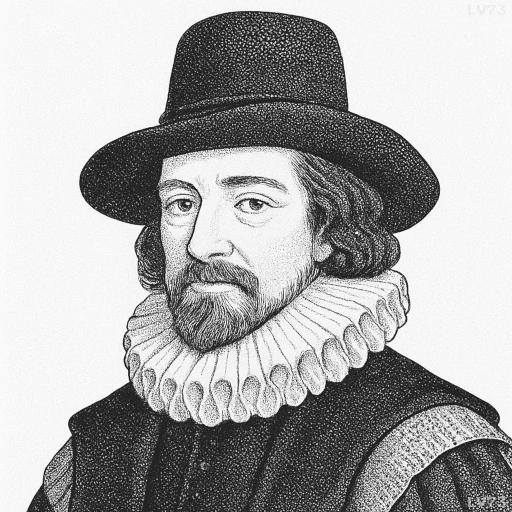“But men must know, that in this theatre of man’s life it is reserved only for God and angels to be lookers on.”

- January 22, 1561 – April 9, 1626
- Born in England
- Philosopher, theologian, jurist, politician, aristocrat
table of contents
Quote
“But men must know, that in this theatre of man’s life it is reserved only for God and angels to be lookers on.”
Explanation
In this quote, Francis Bacon presents life as a theatre, where every individual plays an active role in the drama of existence. Bacon asserts that while humans are actors in this grand play, the only ones who remain mere observers—who do not participate in the human experience directly—are God and the angels. This metaphor highlights the idea that humans are engaged in the active processes of life, constantly making decisions and shaping their own fates, while divine beings, being above the realm of human actions and limitations, watch from a distance. Bacon’s reflection suggests that human life is both a performance and a moral responsibility, where one’s choices and actions are constantly observed by higher powers.
Bacon’s view on life as a theatre connects to the Renaissance humanist understanding of the world, where the focus was placed on human experience, individual agency, and the importance of moral conduct. His reference to God and the angels as observers underscores the belief that life’s ultimate meaning and judgment are rooted in a divine, spiritual framework. Bacon’s writing, which often integrates scientific observation with moral and ethical considerations, suggests that while humans are active participants in life’s drama, there is still a higher order or moral law—embodied by God and angels—that oversees the actions and consequences of human life.
In modern times, this quote still holds relevance in discussions about agency, responsibility, and divine oversight. Many people today view life as a journey where personal actions are shaped by both internal desires and external forces, with some believing in a higher power that observes and influences human affairs. In a more secular context, the idea that humans are participants in a moral theatre could relate to how we are each responsible for our decisions, knowing that our actions impact not only ourselves but others around us. Bacon’s metaphor encourages individuals to consider their actions as part of a larger, more meaningful narrative, whether through spiritual or ethical lenses, reminding us that we are part of a much larger framework of existence where we are observed, guided, and judged by forces beyond our comprehension.
Would you like to share your impressions or related stories about this quote in the comments section?




